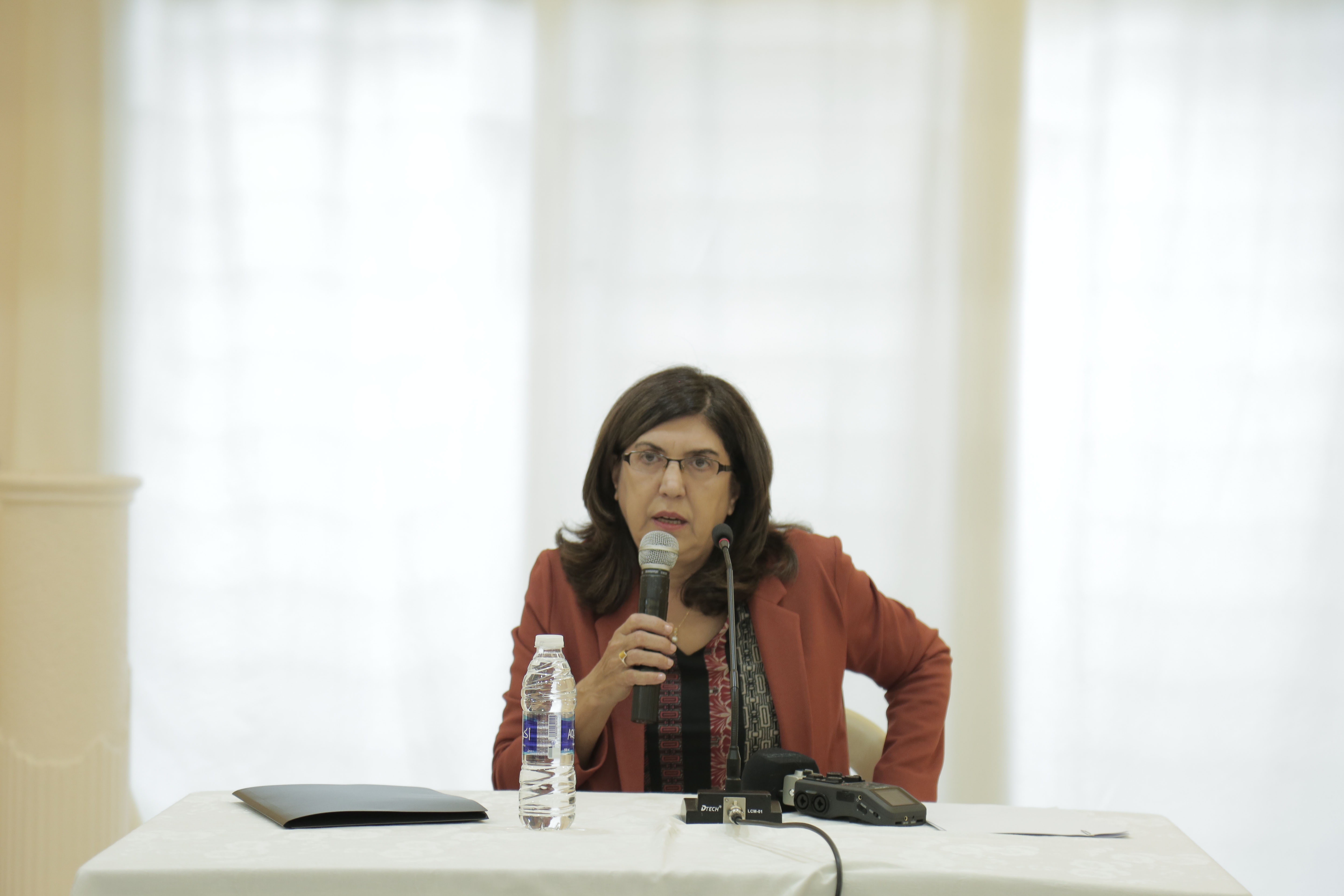Take five: “Bringing justice to people, especially women, is my cause”
Date:

Activist and women’s rights champion Zoya Rouhana is a founding member and director of KAFA (Enough) Violence and Exploitation, which supports survivors of gender-based violence in Lebanon and campaigns for legal reform. UN Women partnered with KAFA to implement the second phase of UN Women’s regional program Men and Women for Gender Equality (MWGE) (March 2019-Feb 2021), supported by the Government of Sweden, which aims to identify successful entry points to tackle social norms that discriminate on the basis of gender. KAFA supports and mentors four community-based organizations which worked under the project’s phase I to identify solutions to the root causes of gender inequality and promote the rights of women in the family, while linking them to national advocacy and policy-making efforts. She spoke to UN Women about how her work has been instrumental in criminalising violence against women in Lebanon.
Can you tell us how you started working for women’s rights?
My name is Zoya Rouhana. I am a women’s rights activist, a founding member and director of KAFA (Enough) Violence and Exploitation. My activism against Violence Against Women started in 1995 during the preparations for the UN’s Fourth World Conference on Women, Beijing. With other feminist activists, I was part of the creation of a fictional court and held a public hearing in Beirut during which live testimonies were presented by abused women from different Arab States countries on the violence they faced. Following this event, we created the Arab Women Court (AWC) and galvanized national action on this agenda in countries such as Egypt, Syria, and Yemen. In Lebanon, this activity led to the creation of a Lebanese NGO dedicated to fighting violence against women (LECORVAW). I was a founder and the general coordinator of LECORVAW until 2005. The NGO operated a hotline for victims and succeeded in presenting the problem of VAW as a public issue, launching breakthrough awareness campaigns targeting a wide audience that included lawyers, security officers, and medical professionals.
In 2005, a group of activists, including myself, founded KAFA Violence and Exploitation, a feminist and secular Lebanese non-profit NGO whose goal is to free society of social, economic and legal structures that discriminate against women and which enable violence against women and children. KAFA prepared the first draft law on Protection of Women and other Family Members from Domestic Violence which was endorsed by the parliament in 2014 (law No. 293) after introducing some amendments. (A new bill that proposes amendments to improve it has been drafted and is currently under discussion by a sub-parliamentary committee). The advocacy and lobbying work around the draft law created a national debate and became a regional best practice. Furthermore, KAFA has pushed the national agenda on topics such as a unified personal status law, migrant domestic workers, trafficking of women, engaging men to fight violence against women, and child abuse.
Can you tell us what is, in your view, the biggest challenge to the empowerment of women and girls in Lebanon?
The biggest challenge to the empowerment of women and girls in Lebanon is a patriarchal society that expresses itself in the legal and cultural systems. The absence of a unified civil personal status law in Lebanon means that all citizens are obliged to abide by different religious laws and courts that all discriminate against women and place them in a subordinate position to men, this is one of the most serious challenges to women’s empowerment.
How do you see men’s role in changing women’s situation in Lebanon?
Societies’ conceptions of masculinity and femininity, and the resultant discriminatory gendered social norms, can change. For that, change should happen at the places where and the ways in which these conceptions are formed. Many men are already taking part in re-shaping gendered social norms in their communities, but the challenge remains in determining how best to encourage and support this process and how to seize the opportunity to build on what is already starting to change. Men and boys can play an effective role in changing negative societal perceptions of masculinity that perpetuate gender discrimination. There is a need for ongoing public awareness campaigns and fatherhood programs to transform men’s perceptions of gender roles in the lives of children. While women’s empowerment is essential to achieving gender equality, we must simultaneously engage men to be actively committed to redistributing power in both their personal lives and in larger spheres
Can you describe what you and your organization will do as part of its partnership with UN Women?
We will provide technical and financial support to community-based organizations in Lebanon so that they implement interventions for tackling gender inequality at the local level using innovation, arts and sports. We will mobilize men and boys, promoting equal share in household chores and unpaid care as a powerful entry point for achieving gender equality and challenging stereotypes. With our partners, we will promote gender transformative fatherhood skills acknowledging that childhood experiences of gender equality are a strong indicator of adult behaviour.
What is your dream vision of Lebanon regarding the situation of women?
My dream for Lebanon is to become a stable secular state that treats all citizens equally, where women have equal access to opportunities and results and their human rights are respected, protected and enjoyed.